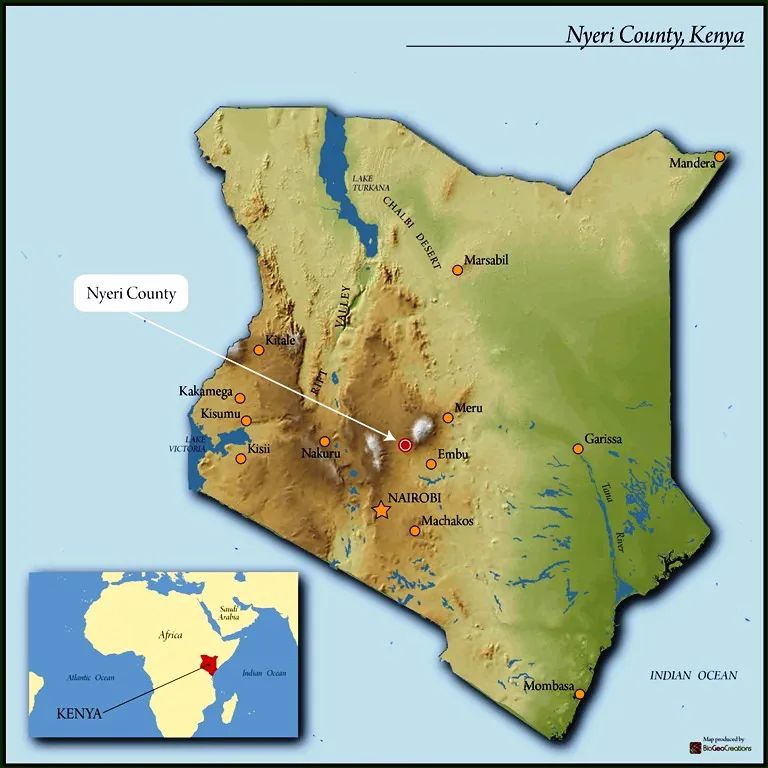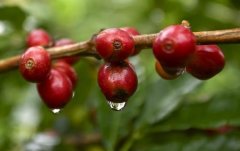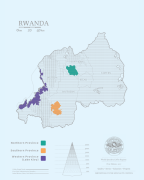East African Coffee Kenya Coffee Industry Story and Arabica Coffee Flavor
Kenya's coffee industry is known for its cooperative system of grinding, selling and auctioning coffee, as well as a high proportion of odor farm production. The East African country Kenya is the 21st largest coffee producer in the world, producing more than 50 million kilograms (112 million pounds) in 2006. Coffee exports account for about 5% of Kenya's total exports. It is estimated that 6 million Kenyans are directly or indirectly employed in the coffee industry.
Although it is close to Ethiopia, which is widely believed to be the place where people began to throw coffee grains into the sea, coffee was grown in Kenya until 1893, when missionaries sacrificed to import bourbon coffee trees from Brazil to Kenya. These trees are descendants of trees found in Brazil and would have been used to develop France's mission had they not been sacrificed as a result of importing them.

At first, coffee was grown mainly on large British-run farms, which were stinking, so they were moved to the mountains and auctions were held in London. However, in 1933, Kenya enacted the Coffee Act, established the Kenya Coffee Commission and established the Kenyan auction system. In 1954, Kenyans controlled only 5000 acres of coffee farms. It was not until the Maomao uprising that began in 1952 that Kenya began to control most of Kenya's coffee production.
Arabica coffee is the main coffee variety produced in Kenya. Although all coffee harvested from any region varies from farm to farm (and even crops), Kenyan coffee has some characteristics that distinguish it from other producing areas. Kenyan coffee is usually medium-bodied and clean, typical of East African coffee, sometimes with citrus flavors. In addition, many Kenyan coffee is thought to have a wine taste and a sour taste.

Kenyan coffee has a graded system.
After grinding, the coffee beans are assigned a grade according to the characteristics of the coffee beans, especially the size. Although many people think that soybean size is a sign of quality, it is important to note that it is only one of many factors that determine high-quality coffee. Although coffee grading standards have been published, this is not an accurate process. The Kenyan Coffee Agency calls grading "an art". They are divided into: e, AA, AB, PB, C, TT, T and Buni. Buni is unwashed coffee, which is not picked from the tree, but falls off when it is ripe. The resulting coffee is generally sour, so this grade of coffee is cheap. About 7% of Kenyan coffee reaches this level.
In Kenya, the most common method of making coffee is Kahawa (bitter coffee), which is characteristic of Kenyan coastal cuisine and is especially popular with older men.
It is usually brewed in a high-copper kettle under a charcoal stove. Coastal residents borrowed this coffee brewing method from the ancient Arab world.
Important Notice :
前街咖啡 FrontStreet Coffee has moved to new addredd:
FrontStreet Coffee Address: 315,Donghua East Road,GuangZhou
Tel:020 38364473
- Prev

Ethiopian coffee harrar coffee sun-baked bean flavor yejia sherfie and sidamo production characteristics
Ethiopia began certifying forest coffee in 2002 with the aim of protecting coffee forests and providing farmers with a better life. Empirical data show that farmers have made considerable interventions in forest ecosystems to increase coffee production, for example, by clearing forests of undergrowth and cutting down trees. This contributes to the degradation of forest ecosystems and biodiversity, and regardless of certification
- Next

High altitude coffee the different and complex Rwandan coffee style in the coffee industry and producing areas with Rwandan characteristics.
Despite the challenges in coffee sales and production, coffee remains one of the most important official sources of foreign exchange in Rwanda. Since Rwandan goods have to pass through other countries through difficult land routes to reach ports, Rwanda does not have a natural advantage in many forms of exports. The fact that the coffee industry still exists under many adverse conditions is a strong testament to its potential. this
Related
- Beginners will see the "Coffee pull flower" guide!
- What is the difference between ice blog purified milk and ordinary milk coffee?
- Why is the Philippines the largest producer of crops in Liberia?
- For coffee extraction, should the fine powder be retained?
- How does extracted espresso fill pressed powder? How much strength does it take to press the powder?
- How to make jasmine cold extract coffee? Is the jasmine + latte good?
- Will this little toy really make the coffee taste better? How does Lily Drip affect coffee extraction?
- Will the action of slapping the filter cup also affect coffee extraction?
- What's the difference between powder-to-water ratio and powder-to-liquid ratio?
- What is the Ethiopian local species? What does it have to do with Heirloom native species?

